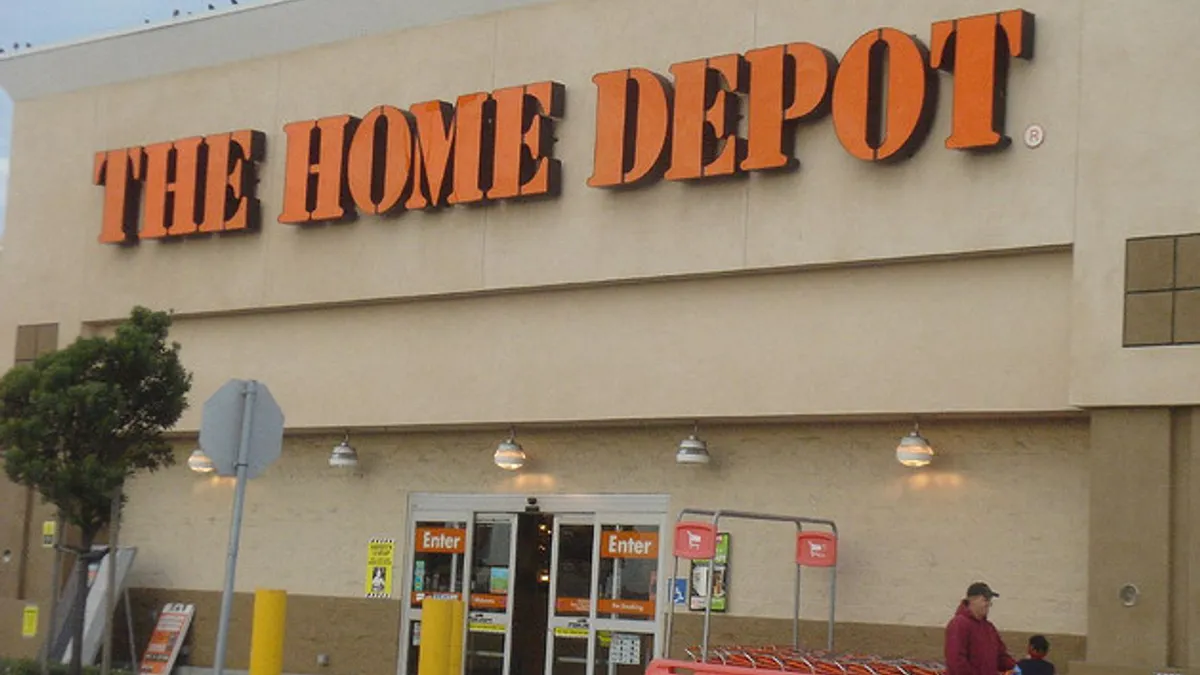Dive Brief:
- A successful omnichannel sales strategy, coupled with a focus on environmental sustainability, led Home Depot to bounce back into Gartner's Supply Chain Top 25 in 2018, the firm announced at its annual Gartner Supply Chain Executive Conference.
- Adidas and Novo Nordisk were other success stories, joining the Top 25 for the first time this year for their investments in 3D-printed apparel (Adidas) and a lean culture that reduced costs of goods sold by double digits in the past five years (Novo Nordisk).
- The firm evaluates supply chains on a composite score of six categories, including 200 expert opinions, the firm's return on assets, revenue growth, inventory turns and focus on corporate social responsibility.
Dive Insight:
The 25 companies honored by Gartner show great variance when it comes to performance. Not all the top supply chains have seen revenue growth in the past three years. Coca Cola, for example, is ranked 22, thanks to above-average expert opinion scores, but has seen a 10.1% revenue decline.
Inventory turns also vary greatly, with Novo Nordisk scoring 1.2 at rank 13, while Cisco showed far less efficiency with a score of 13.1 at rank 3.
Each year's ranking of top supply chains shows the path to excellence is hardly uniform, but a strategic focus on one of the six key categories can lead to great returns.
Home Depot's focus on profitability and return on assets (ROA) over the past three years helped it not only get back on the list, but also jump various positions in the ranking to number 23.
"Even more impressive is that it continues to grow revenue and profits without opening any new physical stores," the report stated, noting the retailer has a "prodigious" three-year ROA average of 18.6%. The metric was boosted by the fact more than 40% of Home Depot's sales are picked up in-store, and the retailer adapted by integrating its distribution channels.
"Its supply chain moved inventory and replenishment into a central team, improving demand forecast accuracy and decreasing the cost of operations for replenishment orders, through operating efficiencies and leveraged spend," the report said.
Regardless of the method, Gartner found most of the companies on the list were following three supply chain trends: a greater focus on the customer experience, a move toward circular operations and scaled digital capabilities.















